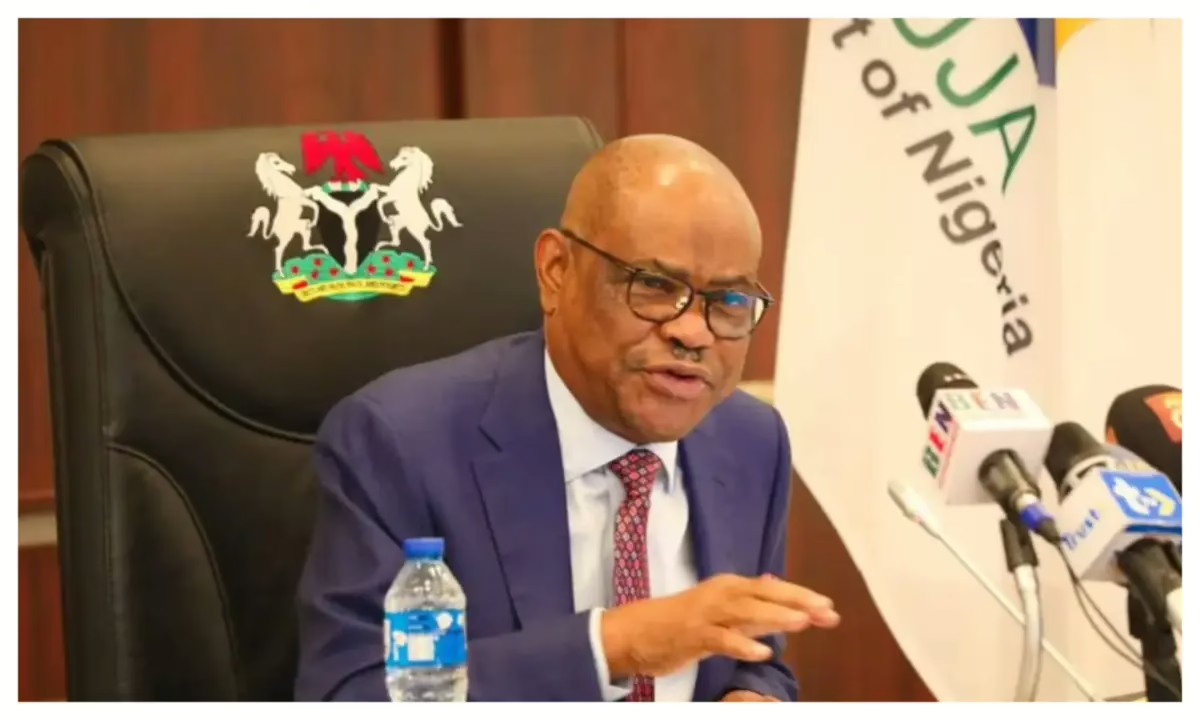PDP’s Zoning Strategy: A Validation of Wike’s 2022 Stance
The recent resolution by the Peoples Democratic Party (PDP) National Executive Committee (NEC) to allocate the 2027 presidential candidacy to the South, while maintaining the party’s National Chairmanship in the North, has been hailed as a vindication of Federal Capital Territory Minister Nyesom Wike and the influential G-5 faction’s position from 2022.
Wike’s Position and the 2022 Controversy
According to Lere Olayinka, Senior Special Assistant on Public Communications and Social Media to Minister Wike, the party’s current decision reflects a belated acknowledgment of the warnings issued by Wike and the G-5 three years ago. They had advocated for a clear separation of the zones for the PDP’s presidential candidate and National Chairman to avoid internal conflicts and electoral setbacks.
Back in 2022, Wike and the G-5 insisted that since Alhaji Atiku Abubakar, a Northern politician, was the PDP’s presidential candidate, the National Chairman position should be held by a Southerner. However, Senator Iyorchia Ayu, also from the North, declined to step down, with Atiku and his supporters endorsing his continuation. This decision, critics argue, contributed to the PDP’s poor performance in the 2023 elections and subsequent internal turmoil.
The 2025 NEC Resolution: A Course Correction
The NEC’s recent ruling that the National Chairmanship remains zoned to the North while the 2027 presidential ticket is designated for the South is seen by many as the party’s attempt to rectify past mistakes. Olayinka described this as the PDP “coming full circle” and implicitly admitting that ignoring Wike’s advice was detrimental.
He emphasized that Wike had proposed a straightforward solution: if the party wanted to secure the presidency, the chairmanship should be assigned to the South. The party’s refusal to adopt this approach in 2022, opting instead to hold both positions in the North, ultimately led to electoral defeat.
Implications for Future Zoning and Party Unity
While the NEC’s decision is a step toward balancing regional representation, questions remain about the timing and long-term impact. Olayinka pointed out that for the zoning arrangement to be credible, the South must complete its full eight-year tenure before the presidency returns to the North in 2031. This timeline is critical to maintaining trust and unity within the party.
As Nigeria’s political landscape evolves, the PDP’s zoning policy will continue to play a pivotal role in shaping electoral strategies and fostering inclusivity. The party’s acknowledgment of past errors and willingness to adjust its approach may influence its prospects in upcoming elections.
Looking Ahead: Lessons from the PDP’s Experience
The PDP’s journey underscores the importance of internal consensus and strategic zoning in Nigeria’s multiparty democracy. Similar to how other major parties worldwide have navigated regional and ethnic considerations to maintain cohesion-such as the Indian National Congress balancing regional leaders-the PDP’s experience highlights the delicate balance between political ambition and party unity.
With the 2027 elections approaching, the party’s ability to implement this zoning decision effectively could determine its success in reclaiming national leadership and restoring confidence among its supporters.






















0 Comments